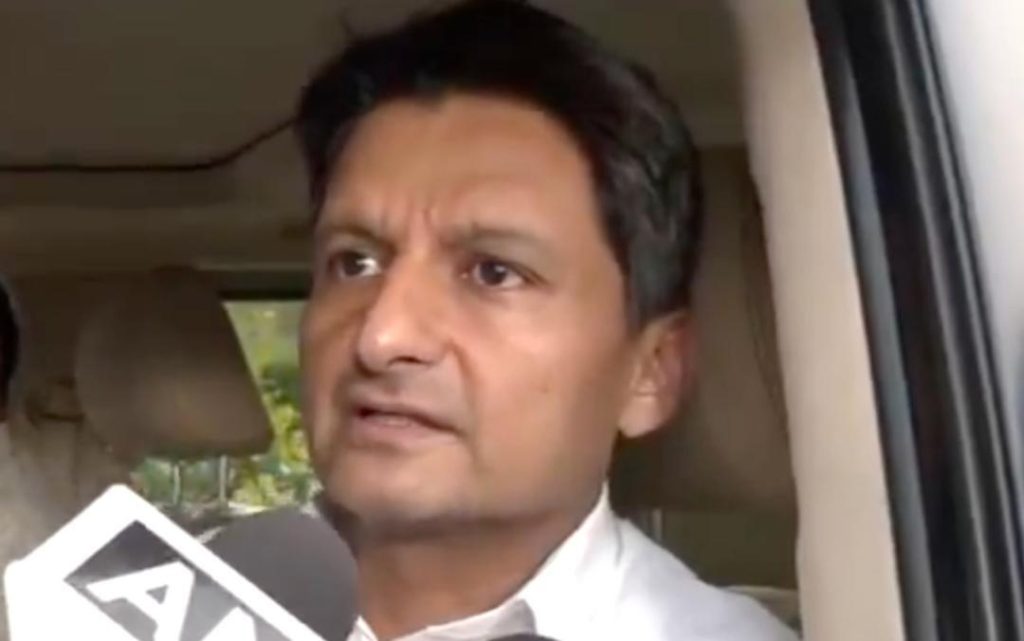
Cannot Just Blame Punjab for Haryana Water Crisis: Congress to BJP
The ongoing water crisis in Haryana has sparked a heated debate between the ruling Bharatiya Janata Party (BJP) and the opposition Congress. While the BJP government has been quick to pin the blame on Punjab for the crisis, Congress MP Deepender Singh Hooda has taken a diametrically opposite stance. According to Hooda, the BJP-led Haryana government cannot get away by blaming Punjab for its own failures.
In a recent statement, Hooda said that while the Punjab government is indeed responsible for some of the issues plaguing the water crisis, the Haryana government’s own inactions and incompetence cannot be ignored. “Punjab government is doing wrong, but officials from Haryana who should have been appointed to the Bhakra Beas Management Board were not appointed,” Hooda pointed out. “The BJP government kept sleeping which ultimately led to the water crisis in Haryana.”
Hooda’s remarks have raised several important questions about the BJP government’s handling of the water crisis. Firstly, what exactly has the Punjab government done wrong that has led to the crisis? And secondly, why has the Haryana government been so slow to respond to the crisis, despite having the power to make a meaningful difference?
The answer to the first question lies in the fact that Punjab has been facing its own water crisis for several years now. The state’s water table has been depleting rapidly, and its rivers and canals have been drying up. This has led to a severe shortage of water for irrigation, drinking, and other purposes. While it is true that Punjab has a responsibility to manage its own water resources effectively, it is also clear that the state has been facing extraordinary challenges in this regard.
On the other hand, the Haryana government’s failures are more egregious. Despite having the power to appoint officials to the Bhakra Beas Management Board, the government has failed to do so. This has led to a breakdown in communication and cooperation between Punjab and Haryana, which has exacerbated the water crisis.
Furthermore, the Haryana government has also been criticized for its failure to invest in water conservation and management. Despite having access to one of the largest water reservoirs in the country, the government has failed to ensure that this water is used efficiently and effectively. This has led to a situation where the state is facing a severe water crisis, despite having the potential to manage its water resources much better.
Hooda’s remarks have also raised questions about the BJP government’s priorities. Why has it been so quick to blame Punjab for the crisis, rather than taking responsibility for its own failures? Is it because the government is more interested in scoring political points than in finding a solution to the crisis?
The answer to this question is clear. The BJP government has been using the water crisis as a political tool to attack the Congress and its allies in Punjab. By blaming Punjab for the crisis, the government is trying to distract attention from its own failures and shift the blame onto someone else. This is a classic example of the blame game, and it is not going to solve the water crisis in Haryana.
In conclusion, the water crisis in Haryana is a complex issue that requires a nuanced and thoughtful approach. While Punjab does have a responsibility to manage its own water resources effectively, the Haryana government cannot simply blame Punjab for its own failures. The government has a responsibility to take responsibility for its own actions, and to work towards finding a solution to the crisis.
As Hooda pointed out, the solution to the water crisis lies in cooperation and communication between Punjab and Haryana. The two states must work together to find a solution to the crisis, rather than blaming each other. The BJP government must take responsibility for its own failures, and work towards finding a solution that benefits all parties involved.
In the end, the water crisis in Haryana is a symptom of a larger problem – the lack of effective governance and leadership in the state. Until the government takes responsibility for its own actions, and works towards finding a solution to the crisis, the people of Haryana will continue to suffer.
Sources:






